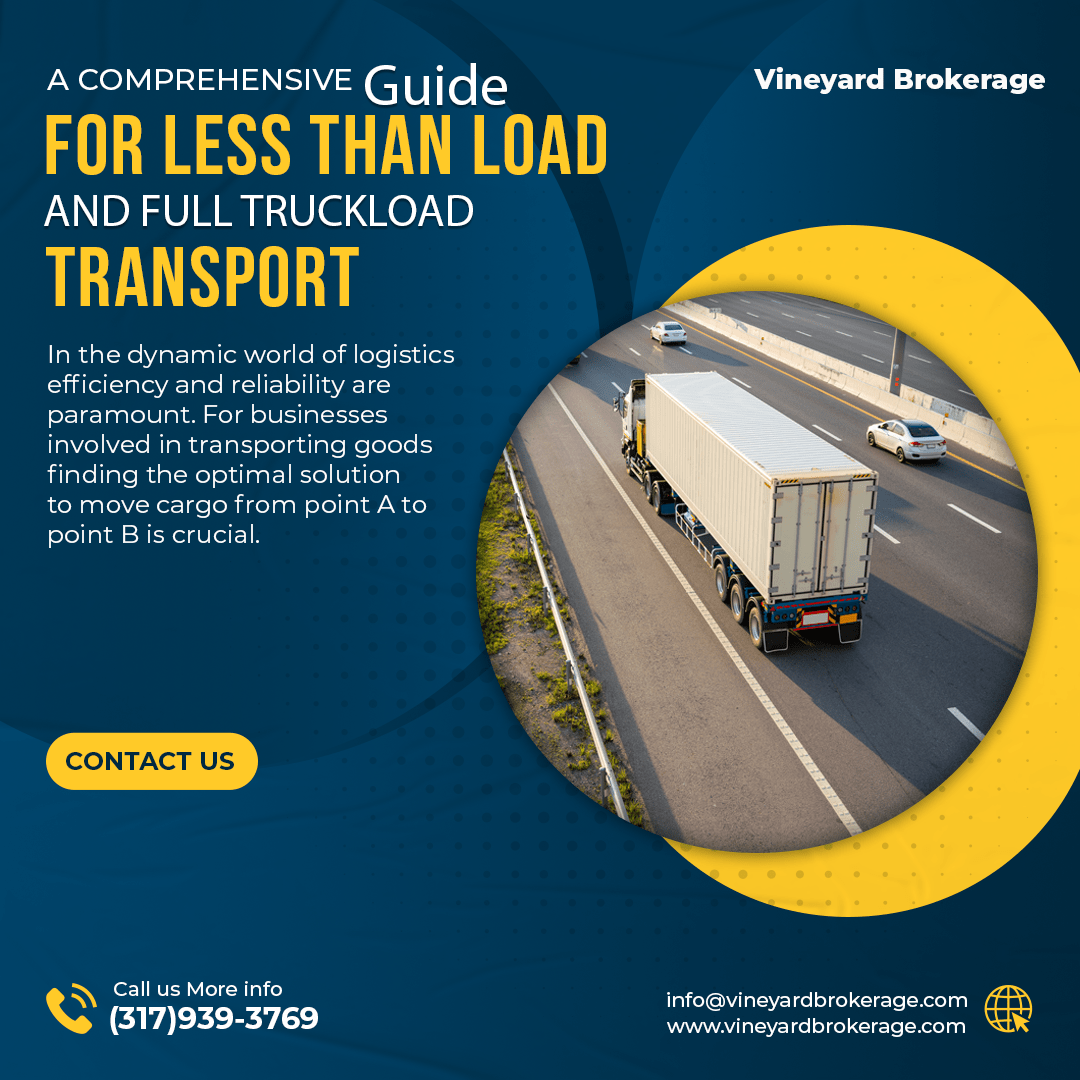A Comprehensive Guide for Less Than Load (LTL) and Full Truckload (FTL) Transport

In the dynamic world of logistics, efficiency and reliability are paramount. For businesses involved in transporting goods, finding the optimal solution to move cargo from point A to point B is crucial. Brokerage firms step in as intermediates between shippers and carriers, facilitating smooth and cost-effective shipping solutions. In this comprehensive guide, we delve into the intricacies of the freight industry, focusing on two key transport modes: Less Than Load (LTL) and Full Truckload (FTL). As we journey through this landscape, we’ll explore the significance of brokerage services, the nuances of LTL and FTL transport, and the role of freight brokers in connecting shippers with truck drivers.
Understanding Less Than Load (LTL) Freight
Shipments that can be transported without requiring a full truck are referred to as less-than-load (LTL) freight. Instead, LTL carriers consolidate multiple shipments from different shippers into a single truck, optimizing space and reducing costs for each individual shipper. This mode of transport is ideal for businesses with smaller loads or those looking to save on shipping expenses.
The Advantages of LTL Freight
Challenges of LTL Freight
Navigating Full Truckload (FTL) Transport
Advantages of FTL Transport
Challenges of FTL Transport
The Role of Freight Brokers in the Industry
Benefits of Working with Freight Brokers
Choosing the Right Freight Broker
Conclusion
Freight brokers function as go-betweens for shippers and carriers, offering seamless and competitively priced transportation options tailored to your unique needs through their industry relationships and specialist knowledge. Working with a respectable freight broker like Vineyard Brokerage can open up a world of possibilities, regardless of whether you’re exporting smaller cargoes via LTL or require the efficiency of FTL transit. Freight brokers function as go-betweens for shippers and carriers, offering seamless and competitively priced transportation options tailored to your unique needs through their industry relationships and specialist knowledge. So, the next time you’re looking for freight brokers to navigate the complexities of the freight industry, trust in the expertise of Vineyard Brokerage to deliver results that exceed your expectations.

